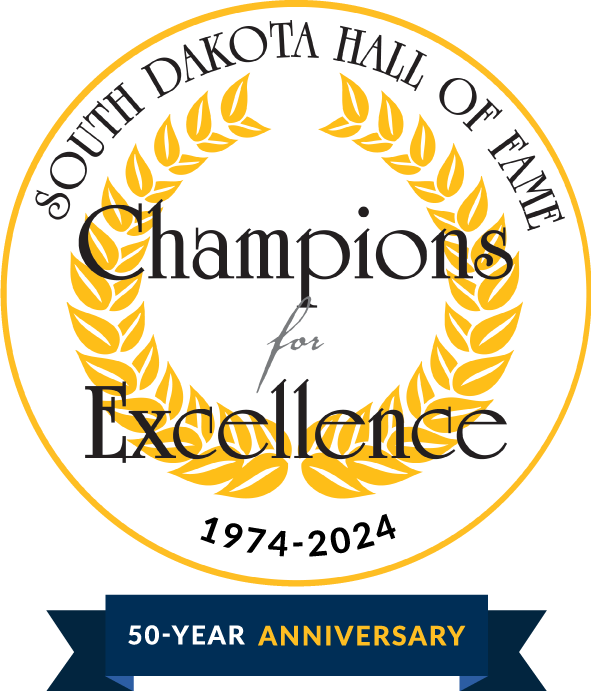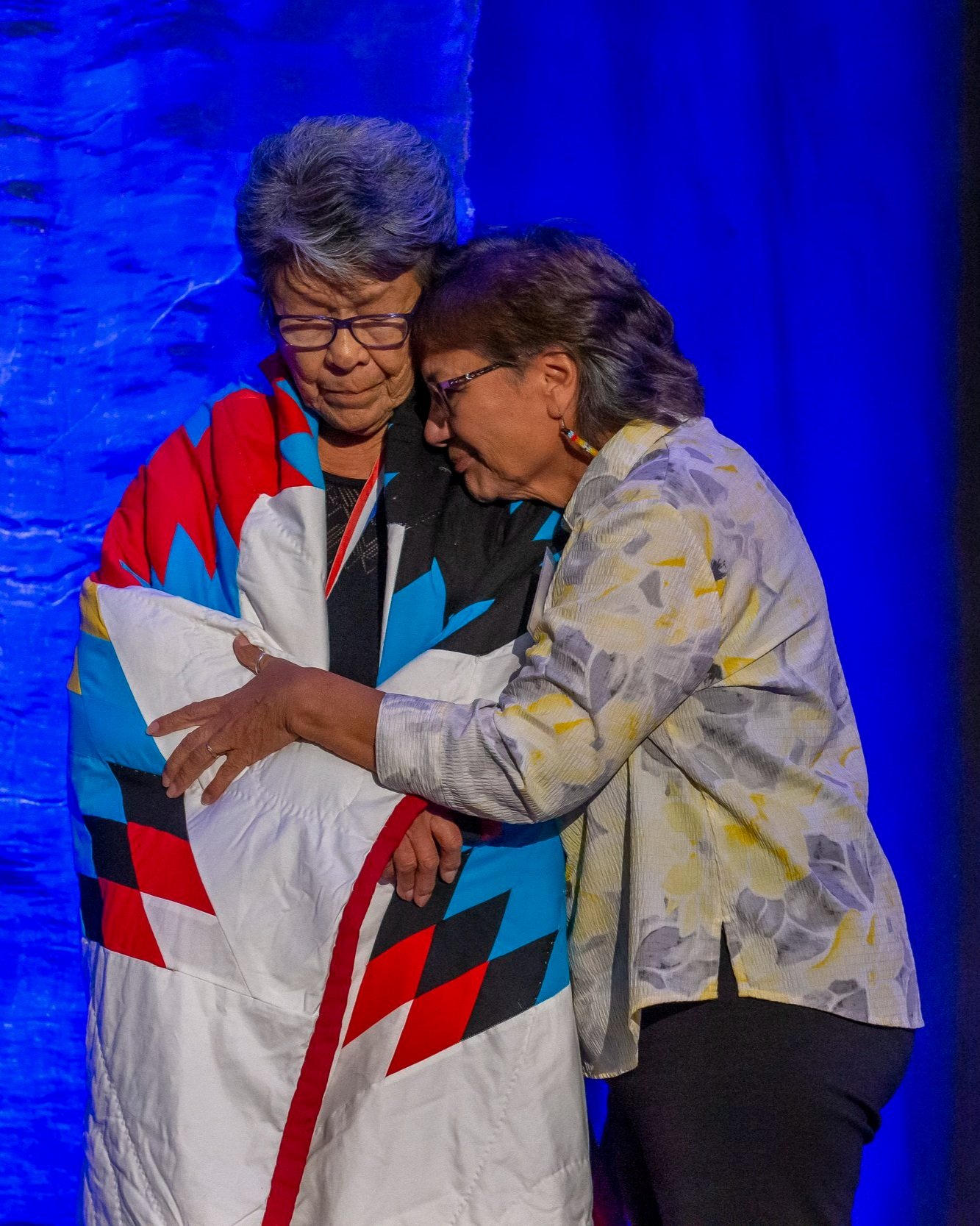The South Dakota Hall of Fame Remembers 2022 Inductee Bev Warne
Bev receiving a star quilt by loved ones during the South Dakota Hall of Fame 2022 Honors Ceremony
The South Dakota Hall of Fame extends heartfelt condolences to the family of Beverly (Bev) Stabber Warne (1939-2024), a 2022 Inductee of the South Dakota Hall of Fame. Bev passed away surrounded by love on Sunday, April 14, 2024. She was inducted for her contributions to the advancement of nursing. Her impact is deep and lasting in South Dakota and will be felt for generations to come. To celebrate a life that made an impact on so many people, a service was held Friday morning for Bev.
Bev was born Beverly Mae Stabber in 1939, near a creek on the Pine Ridge Reservation. Her mother and auntie were both pregnant concurrently, with due dates just days apart. The two young Lakota women wanted to relocate to Pine Ridge to give birth at the hospital. However, at the insistence of Bev’s grandmother, both babies were delivered the Lakota way, peacefully by the grandmother and aunties at the family encampment.
Lakota is Bev’s first language, and her early life was immersed in traditional Lakota values and ceremonies and was full of the nurturance of a large, extended family. The first time Bev heard the English language was on the first day of kindergarten at the Oglala boarding school in Pine Ridge. She recalls being with other Lakota children who were afraid and crying because they were away from their families for the first time. Bev remembers feeling startled by the first-grade teacher who could speak both English and the Lakota language. Bev’s formative years on the reservation were full of love, values, and life lessons she would carry with her throughout a nursing career of over 60 years.
At nine years old, the family relocated to Rapid City, SD. Bev recalled walking with her father down Main Street for the first time and seeing a sign that read: “No Indians Allowed.” She did not understand why people would treat her or her family in such a way. “I grew curious about why people would view me so differently.” When she asked her father, he simply explained, “it is because they don’t know us.”
In her elder years, Bev had a calm, nurturing spirit about her. She credited much of her success to her grandfather, who would sing morning and evening prayers, followed by singing stories to teach the Lakota values of fortitude, wisdom, courage, generosity, honor, respect, and humility. “He would sing us stories,” she reflects. “The drum, matching our heartbeat, would engrain those lessons into our hearts.” These values built Bev’s confidence in knowing who she was, so she would respond with curiosity rather than anger while facing adversity. Following that incident on Main Street, Bev found herself in the library, speaking with the librarian, whom Bev would go on to credit as an early mentor. “I walked in and did not know what a library was. I just heard they had books to read. All I knew was I wanted to read, to learn.” From that moment, Bev was not only curious but inspired. She wanted to see the world. Yet, how would a poor girl be able to travel? Even attending school seemed improbable due to cost. Fortunately, another mentor would enter Bev’s life: Sister Benedict.
Having met through an industrial relations course at Rapid City High School, Sister Benedict saw Bev’s dream of becoming a nurse and helped her secure a scholarship. These events allowed Bev to graduate from St. John’s McNamara School of Nursing in 1962. Sister Benedict helped Bev in other ways, as well. While in school, while checking on a patient, Bev was asked to leave the room because she was Native American. Sister Benedict would not let that stand. Instead, she spoke to the patient and shared words that would inspire Bev more than 60 years later: “You must shore up your courage and get back in there.” A gentle reminder of the values her grandfather had taught her since she was young.
Following graduation, Bev and her husband traveled to Arizona, Washington DC, Thailand, and Mexico, where she would continue to experience moments of impact and find new mentors. They spent most of their time raising their two sons in Arizona and furthering Bev’s career. In 2009, Bev retired from Arizona State University’s College of Nursing and returned home to South Dakota. However, her retirement was short-lived, and she found it was time to pass on the lessons she had been learning along the way.
Bev was asked to lead the way in creating the Native American Nursing Education Center (NANEC) mentoring program for the SD State University. Walking into NANEC on Mount Rushmore Road, you cannot help but feel a sense of calm. The subtle smell of cleansing sage fills the air; the staff are warm and inviting. There is also a library with nursing and Native American books, a copy machine for students, school supplies, and private study areas. But Bev’s favorite room of all was the Wicozani Otipi – the welcoming space with comfortable furniture and snacks for students.
Bev couldn’t think of a more meaningful and vital way to leave a legacy. Her students knew they were always welcome. Young Lakota people should always feel welcome and wanted, and through this, their dreams can come true. The impact of Bev Warne’s work will continue to influence many generations to come.

